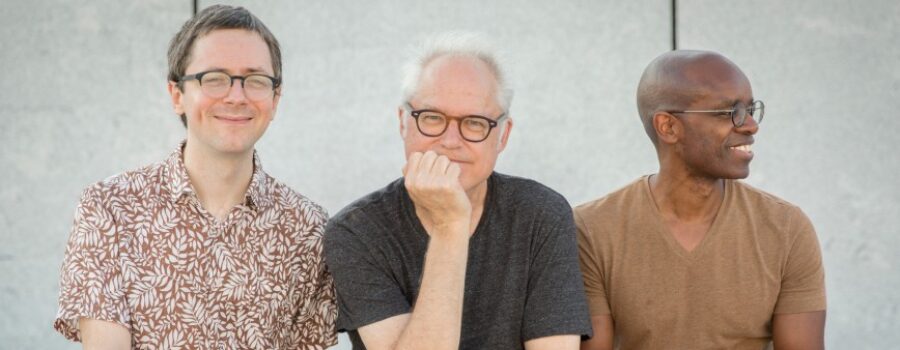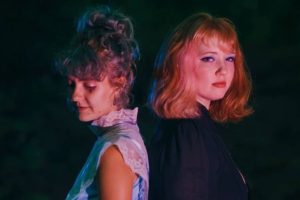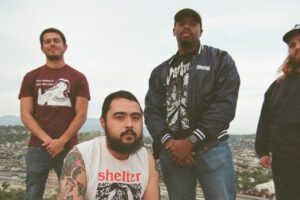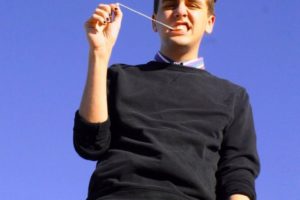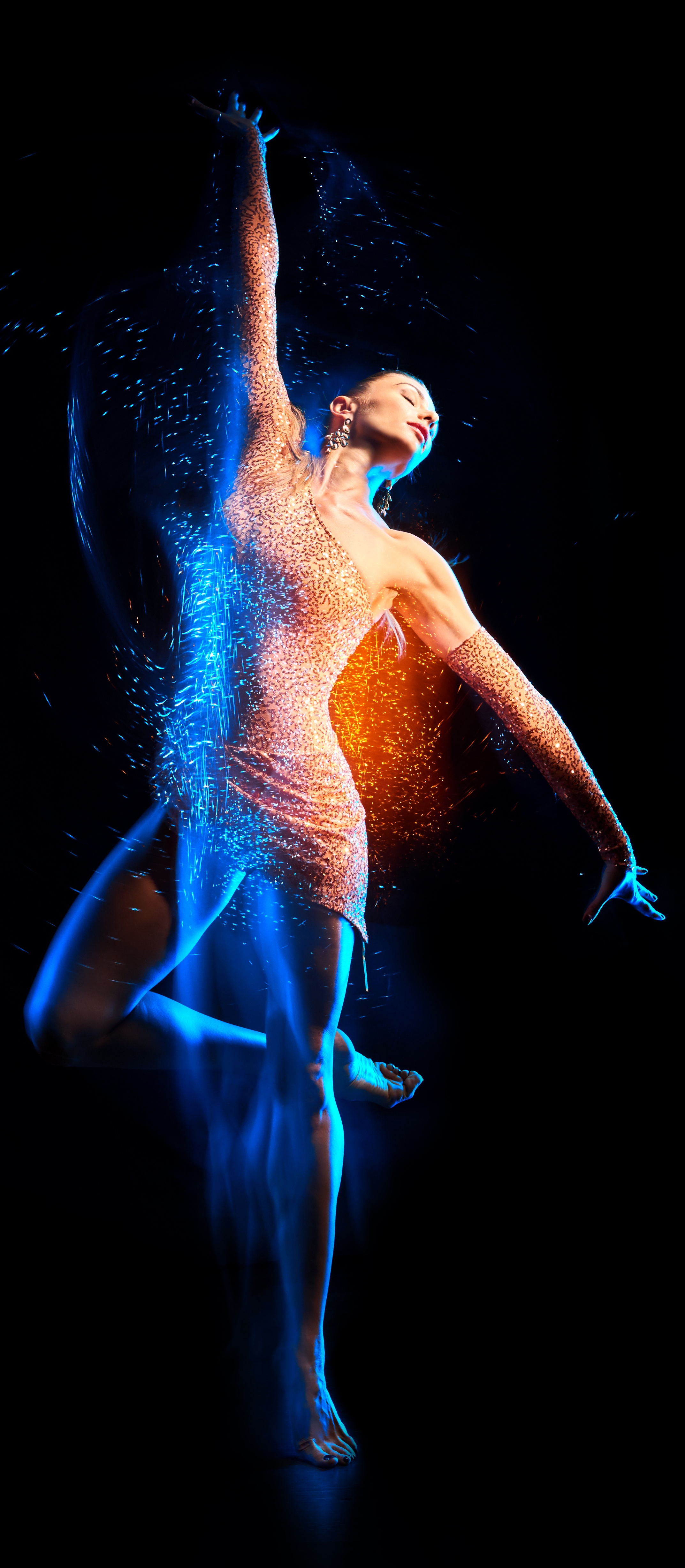Photo Credit: Monica Jane Frisell
For many musicians, music has always just been there. At least that’s been the case for Bill Frisell. From being a kid listening to the radio to his time in the ‘70s when he was living in what he remembers as “a little fleabag apartment” in Denver where he taught at a music store and spent many nights practicing for gigs that ceased to exist at the time. Practice, an important aspect of being a musician. Something he learned from Sonny Rollins. He never met him, just admired his creative ways and worth ethic from afar.
Afar, something that the world has had to get used to this year – Bill Frisell included. He spent a lot of time last year with bassist Thomas Morgan and drummer Rudy Royston, and with that decided to work together on this year’s ‘Valentine.’ While any plans they had to perform these songs had to be put on hold, they managed to find a way to play recently, “We got together and played on our friend Derek Nievergelt’s porch in Brooklyn. Folks from the neighborhood stopped by to listen. I can’t tell you how good it felt; a relief. This was the first time we’d played together since all this mess started. I’m hoping this can happen more often. The most difficult strange part of that wonderful day was that after we finished playing, the most natural instinct is to hug each other. I can’t think of a gig where that doesn’t happen. We couldn’t do that this time. It hurts. But we got to play.”
We talked about Bill teaming up with Thomas and Rudy, the current state of America and where their cover of “We Shall Overcome” comes into play, and more in this back and forth exchange.
Kendra: You have spent years touring alongside Thomas Morgan and Rudy Royston, but when did the switch flip in your head to sit down and record with them? Was it before 2020 started to deliver one storm after another, or before this year got started?
Bill Frisell: I had been wanting to record this trio for quite a while. We spent a lot of time together in 2019. We put in a lot of miles; Europe, Vietnam, Australia, Japan, all over the place. In August we were at the Village Vanguard, and I thought it would be great to record soon after that. So that’s what we did. I feel so lucky to be with Blue Note and to have the support of Don Was who understands things from a musician’s point of view. The time was right. We went to Tucker Martine’s studio (Flora Recording and Playback) in Portland, Oregon and recorded in September, 2019. Tucker recorded and mixed; Lee Townsend produced.
Kendra: I ask because this year we’ve been tested in terms of connection. Yes, we have all the technological advances out there but there’s still a sense of loneliness in the air because of social distancing. Do you feel this time of 21st-century isolation will have a lasting impact on not only what musicians are inspired to write this year, but art as a whole moving forward?
Bill Frisell: Yes. This has been SO intense. When I was in 4th grade I started in the Denver Public School music program. Even before that, like since kindergarten or something, we’d sing together or play triangles, or bang on things. Or before that, as far back as I can remember, my mother would be singing around the house, or my grandfather would be playing a violin or a trumpet. What I’m trying to say is that since as far back as I can remember I don’t think more than one or two days went by where there wasn’t some kind of musical interaction with someone.
And then March 8, 2020 I get home from a tour and a few days later we’re on another planet. It was (still is) traumatic. But somehow we keep going. Right away I went to my guitar. Music always saves me. I’ve been playing, writing, and practicing on repeat.
Kendra: Back to the three of you. Were there any differences you noticed in working with Thomas and Rudy in a recording aspect versus touring with them that helped you get to know one another even more than you already did?
Bill Frisell: I learn something from Thomas and Rudy every time we play. You’ve probably heard it said that a band is only as good as its weakest link. That’s my secret. Whenever I put a band together I make sure I’m the weakest link. These guys are my teachers. Every minute I’m being challenged. But it’s not a contest. There is so much trust. We watch out for one another.
I had the extraordinary opportunity to tour with McCoy Tyner. Before the first gig I was nervous. No rehearsal. Didn’t know what to expect. I called him up on the phone hoping for some guidance. He said, “It’s not the army!” That’s all I needed to know. We just played. The first time I played with Charles Lloyd he said, “I’m looking forward to singing together.” That was all I needed to know.
With Thomas and Rudy we just play. We sing together. Whether it’s in the studio or on a live gig we bring all our experience and just try to be in the moment and keep going and surprise one another. It’s amazing. I’m very lucky. It’s not the army.
Kendra: You’ve had such a lengthy career thus far and with that have released a myriad of albums. How do you feel ‘Valentine’ differs aesthetically from your previous records?
Bill Frisell: I don’t know if I have an answer for that question. Like you said, I’ve released a lot of albums, but from my perspective it feels more like one life long continuous piece of music. Each album leads to the next. I’m so lucky to be in this situation where the opportunities to record keep coming up. I don’t take it for granted. Hopefully I’m not done yet. Recording is weird. It’s like a snapshot; a photograph. A recording captures one moment, freezes it. But then, music doesn’t work that way. It keeps going. It never stops. I don’t go back and listen to my records.
Kendra: ‘Valentine’ features originals as well as some covers like “We Shall Overcome,” a song you said you’ll play until it’s not necessary anymore. This year has seen major strides in racial equality but it seems like we have so much further to go. Do you think you’ll see an America that is void of overt racism in your lifetime? I ask because my dad is 80-something and it saddens me that he lived through the Civil Rights Movement and all these years later, it seems to be the same story with new faces.
Bill Frisell: This is a heavy question. I was quoted as saying I would play that song until it’s not necessary anymore. I’m not sure if that was the right way to put it. We’re going to need that song for a while. Obviously. I grew up in Denver in the ‘50s and ‘60s and lived in what I’ve come to realize was an unusual situation. Denver was segregated, still is. Like everywhere else. In one way or another. Not with signs saying “Whites Only” or “Colored.” Nothing as obvious as that, more subtle. North, south, east, west. Rich, poor. But, my high school was located right in the center of the city. Everyone was there. Kids from all over town. It was integrated. I didn’t realize until much later how extraordinary this was.
Some of my classmates were Philip Bailey, Andrew Wolfolk, and Larry Dunn, who went on to play in Earth Wind and Fire. I always like to brag about that. We all played in the concert band together. Other folks that went to my high school at one time or another were Judy Collins, Hattie McDaniel, Don Cheadle, Ron Miles, Pam Grier, Neil Cassidy, Harold Lloyd, etc. Sorry, I’ll stop.
Back to the question. Playing music all the time brought folks together. Both in school and outside of school. I always felt welcomed in the music community. The older guys would invite me up to sit in. This seemed normal to me. When I was in the music and amongst musicians everything made sense. It was a model for how the world could be. Things were messed up. Vietnam. There were huge problems. There was horror; assassinations. But, somehow there was also a feeling that we were coming up out of it. Together. Maybe I was looking through rose colored glasses. I still carry that feeling of hope with me that we’re going to figure things out. Obviously it’s going to take a while.
‘Valentine‘ is out August 14, 2020 on Blue Note Records.

